
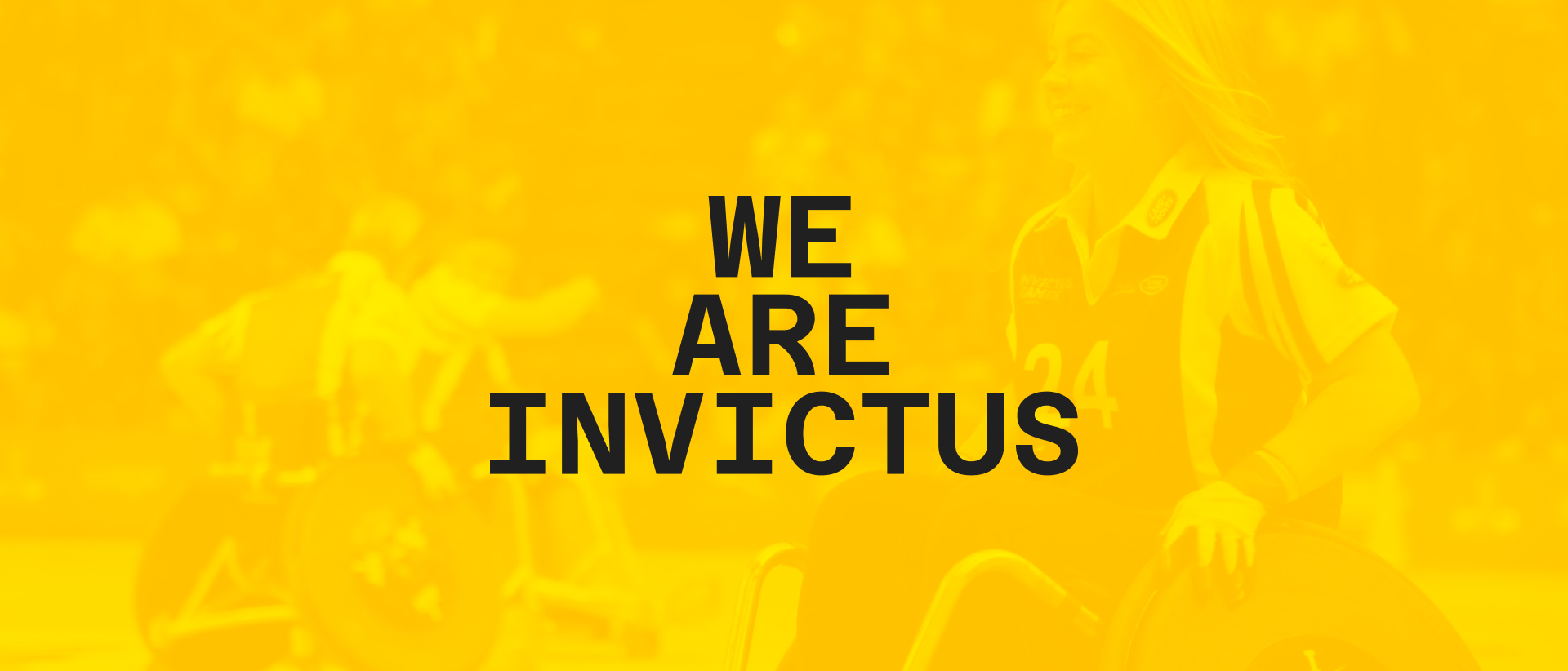
- Community-driven social platform
- Multi-platform accessibility focus
- Streamlined member onboarding
- Enhanced user experience design
- Cross-device compatibility
Set up to aid the recovery of international wounded, injured and sick (WIS) current and veteran service personnel, the Invictus Games has fast become one of the world’s most recognisable sporting events.
Six Games have been held since its launch in 2014, with more than 3000 participants from 20 countries taking part. Two more Games, including the first winter Invictus, are scheduled for 2025 and 2027.
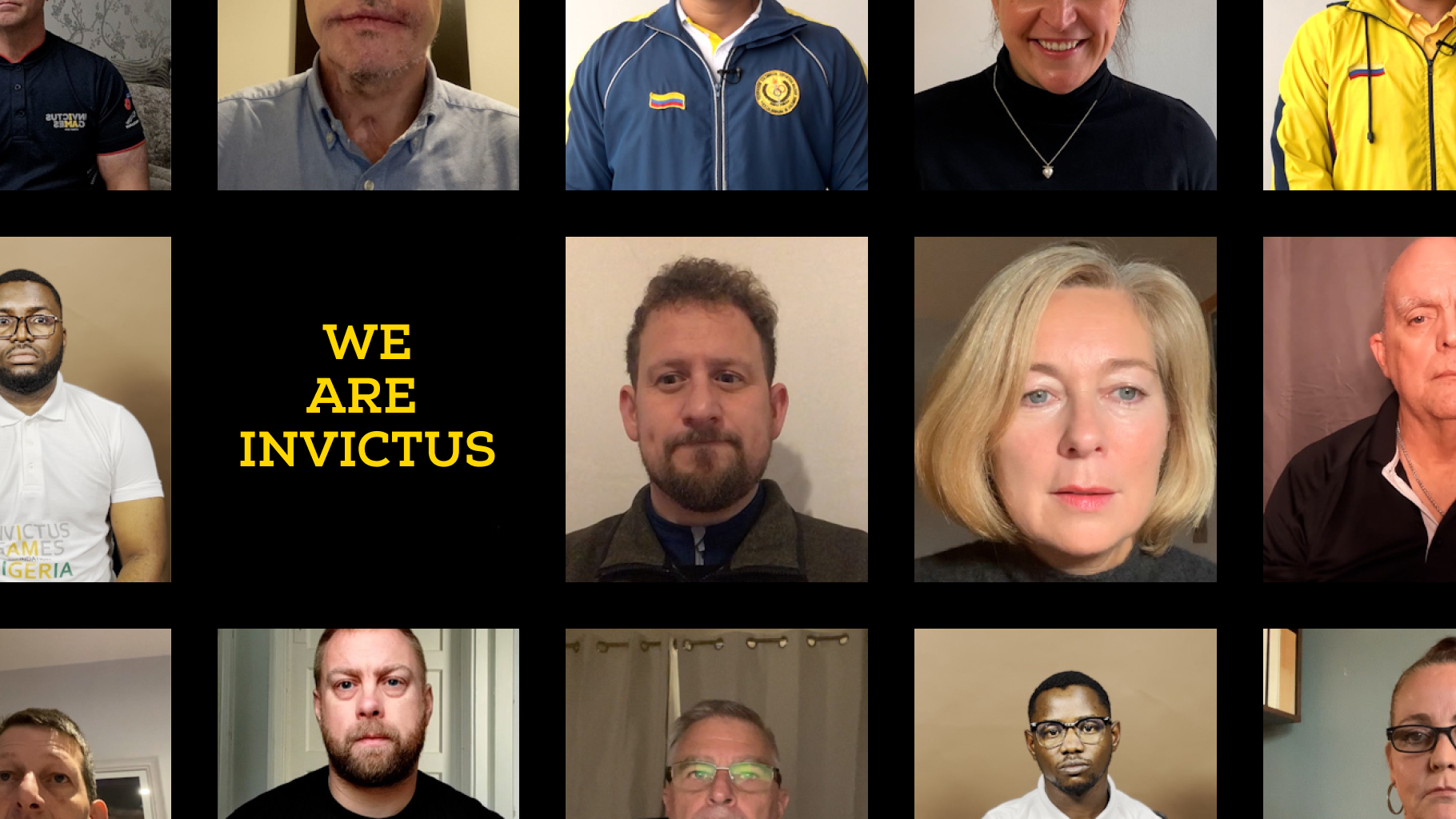
A unique app for a unique audience
That space is We Are Invictus, launched in 2019 as a one-of-a-kind social network for WIS personnel. Members can connect with people and learn about new challenges, such as upcoming Games or other events, as well as find volunteering, employment and even speaking opportunities. All with the aim of fostering a community that helps people with their recovery. It is available via the web, on iOS and Android mobiles and tablets.
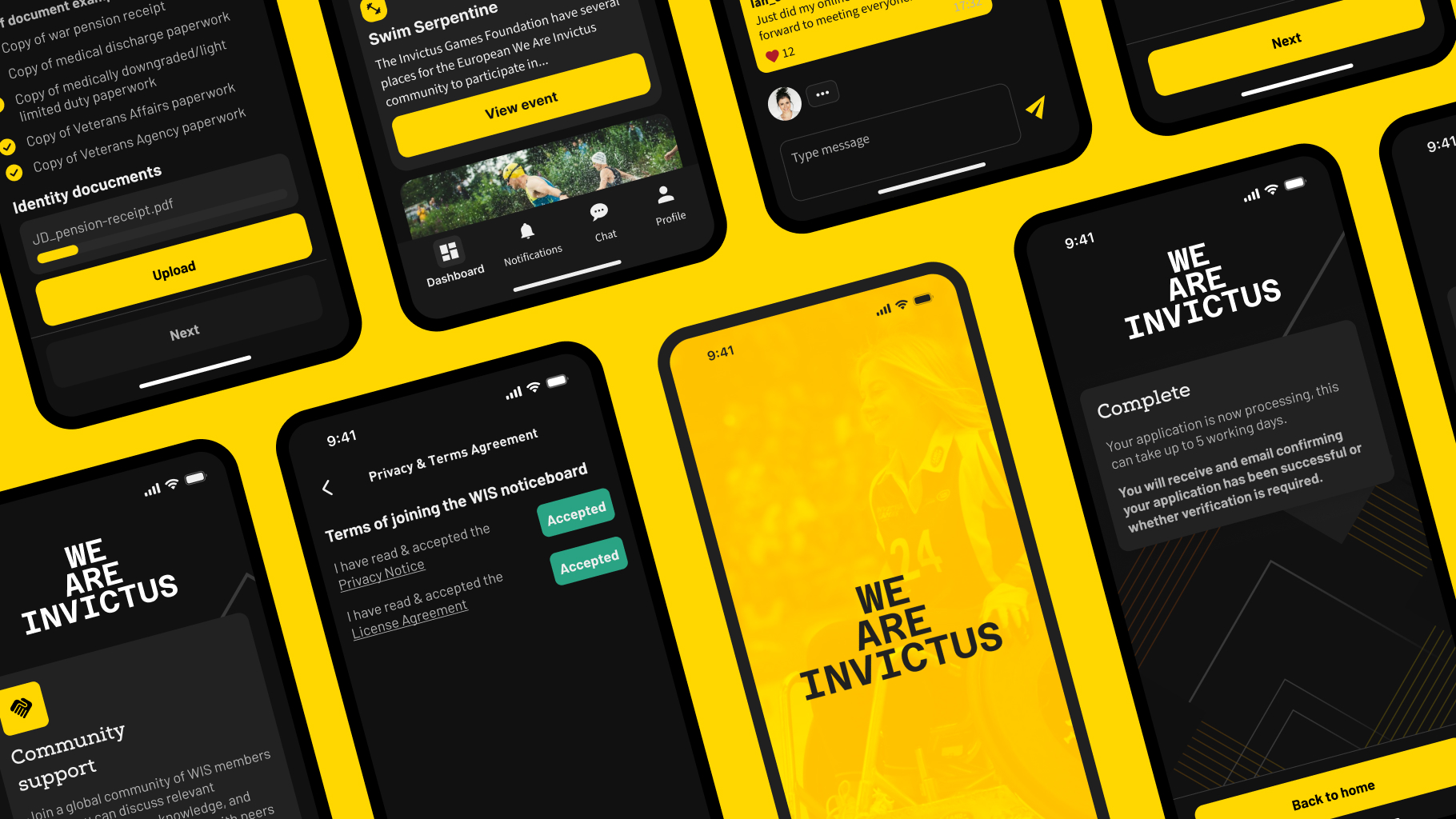
Rebuilding an app for a major moment
2024 marked ten years of the Invictus Games. To celebrate, a host of events, many of them virtual, were planned, with We Are Invictus central to those celebrations. To get the app ready, there was a long list of areas to address. The team was conscious that it would need outside support to deliver what it wanted and prioritise what it could achieve in time for the anniversary.
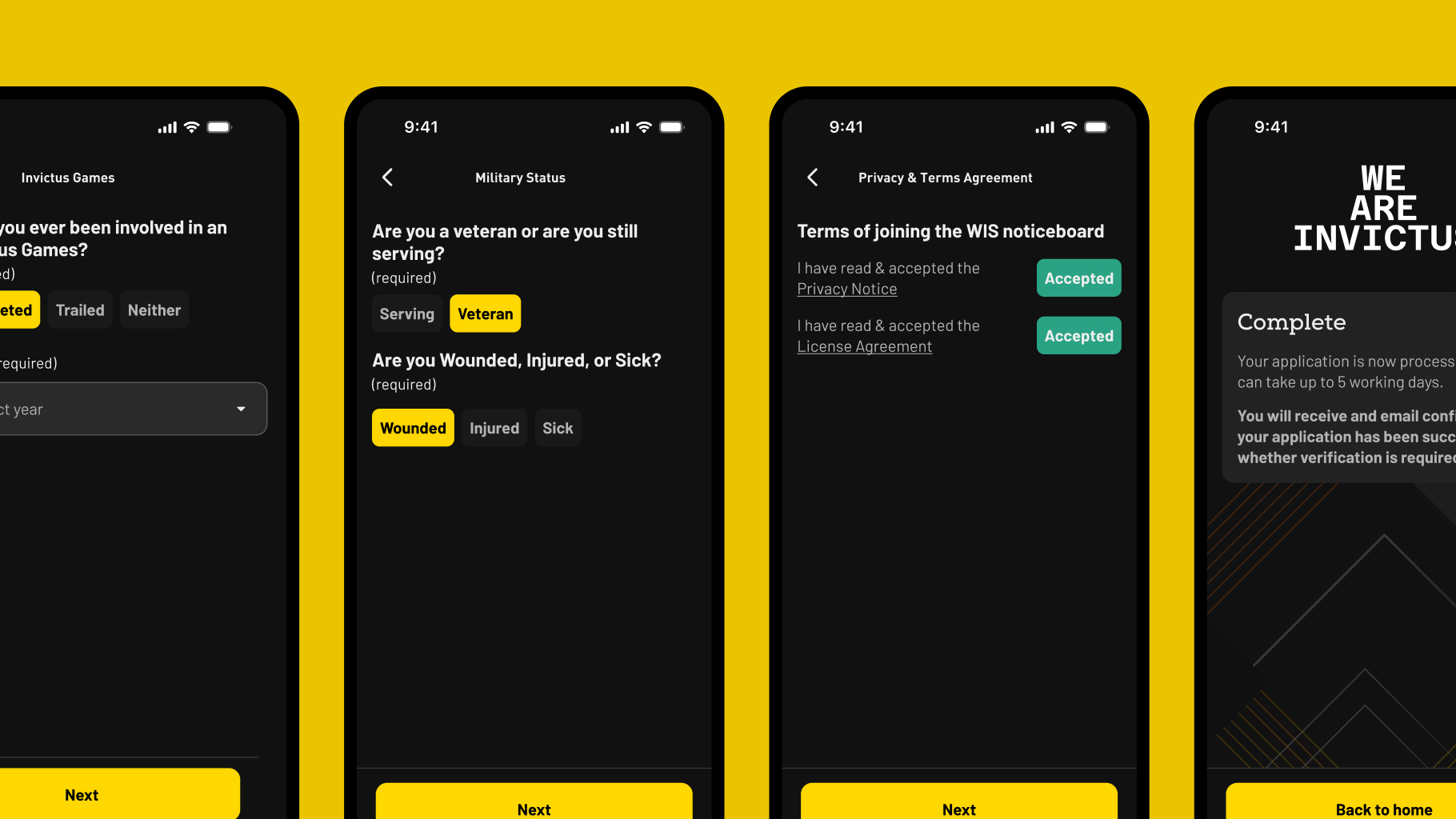
Our relationship with Invictus started as a conversation. This evolved into a series of workshops where the team discussed the issues they were facing and we started to understand where the priorities lay.
“Whenever someone comes to you with a problem, the easy approach is to just focus on that. But our experience shows you rarely get the desired result. What someone thinks is the issue and what it actually is are often very different, so it’s important to spend time digging into the challenges to find the root cause of the problems and work back from there.”
Christian Jack, Product Manager at UIC Digital
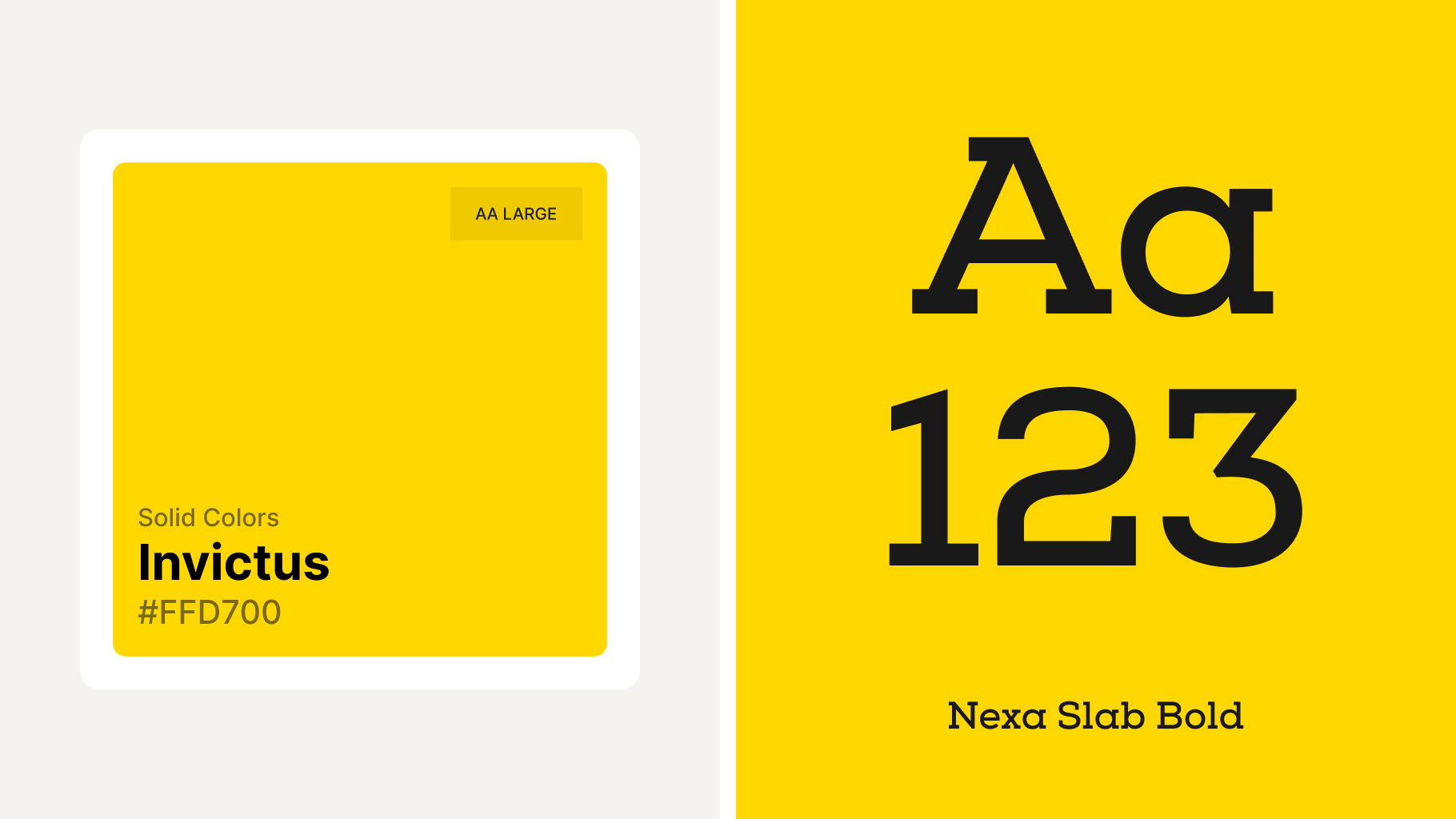
Working with the Invictus team, we determined what would deliver the most value in the shortest time to get the platform ready for the tenth anniversary.
As a result, we defined four key areas to focus on:
1. The sign-up process
The sign-up process is the gateway to the app. We identified a number of areas where it could be streamlined for both members and back-office employees. These included reducing the amount of personal information required, removing questions that didn’t need to be asked until later in the process and addressing the amount of toggling between CMS pages team members had to do.
2. The user interface and accessibility
The interface needed to be easy to navigate and meet the varied accessibility requirements. An outdated, hard-to-use design would affect the user experience and the perception of professionalism.
3. Branding and identity
The app needed to be the brand; for many members, it was their way of connecting to Invictus. The team wanted to build an Invictus community, meaning its platform must reflect the brand’s look and feel, values and mission.
4. Technical polish
The app needed a level of technical polish, such as form validation, which would help prevent user errors and improve data accuracy. Making sure functionality like mobile-specific keyboards was enabled so that keyboards switched from numeric to email depending on the field was critical.
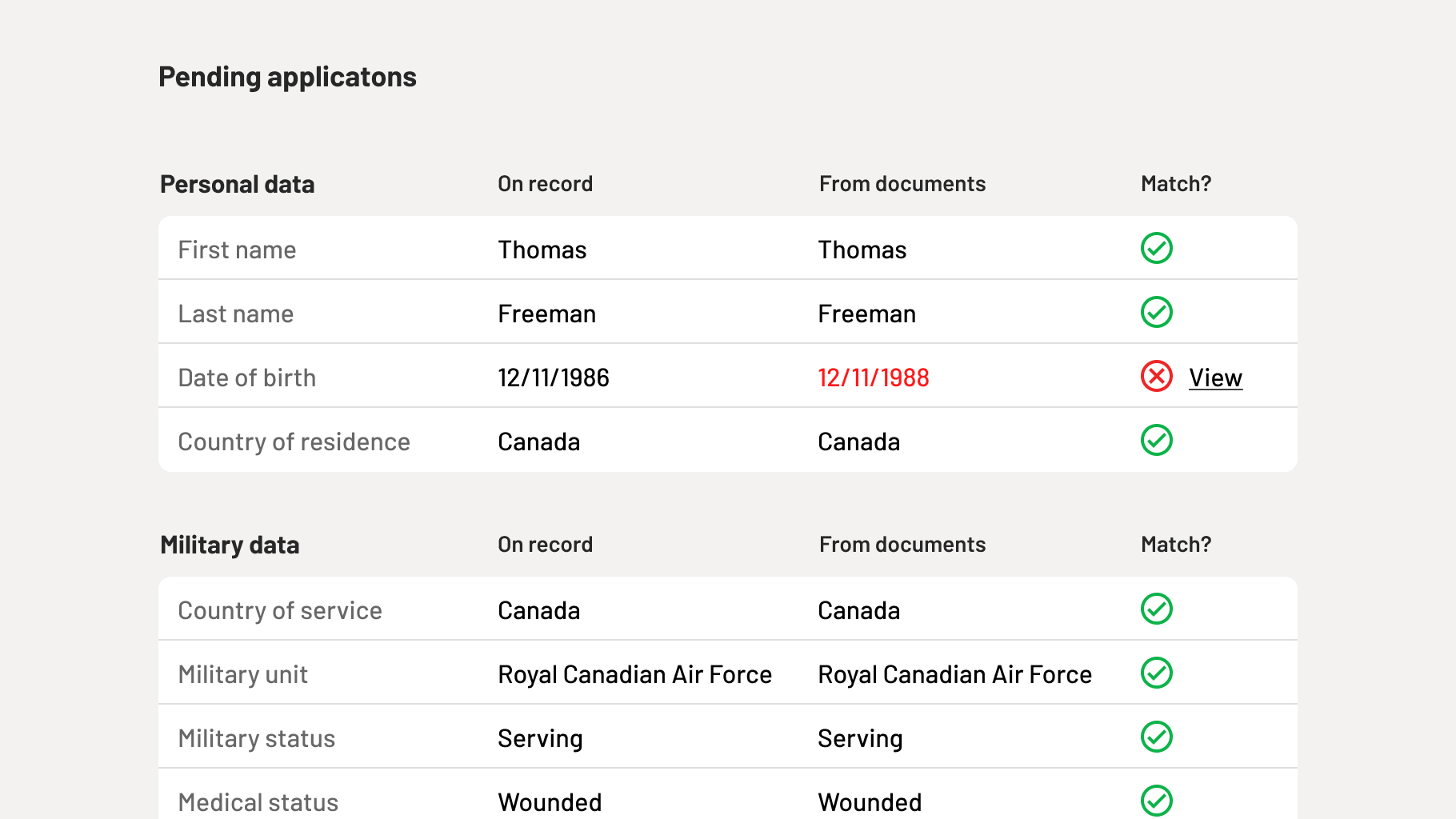
We also defined key performance indicators, conceiving measures that balanced ambition with achievability. Most importantly, these KPIs aligned directly with having a positive impact for both members and employees.
These included:
- Increasing the number of users
- Growing the number of member nationalities
- Accelerating the sign-up process
- Reducing the amount of time members spend waiting for documentation to be reviewed
- Improving in-app engagement
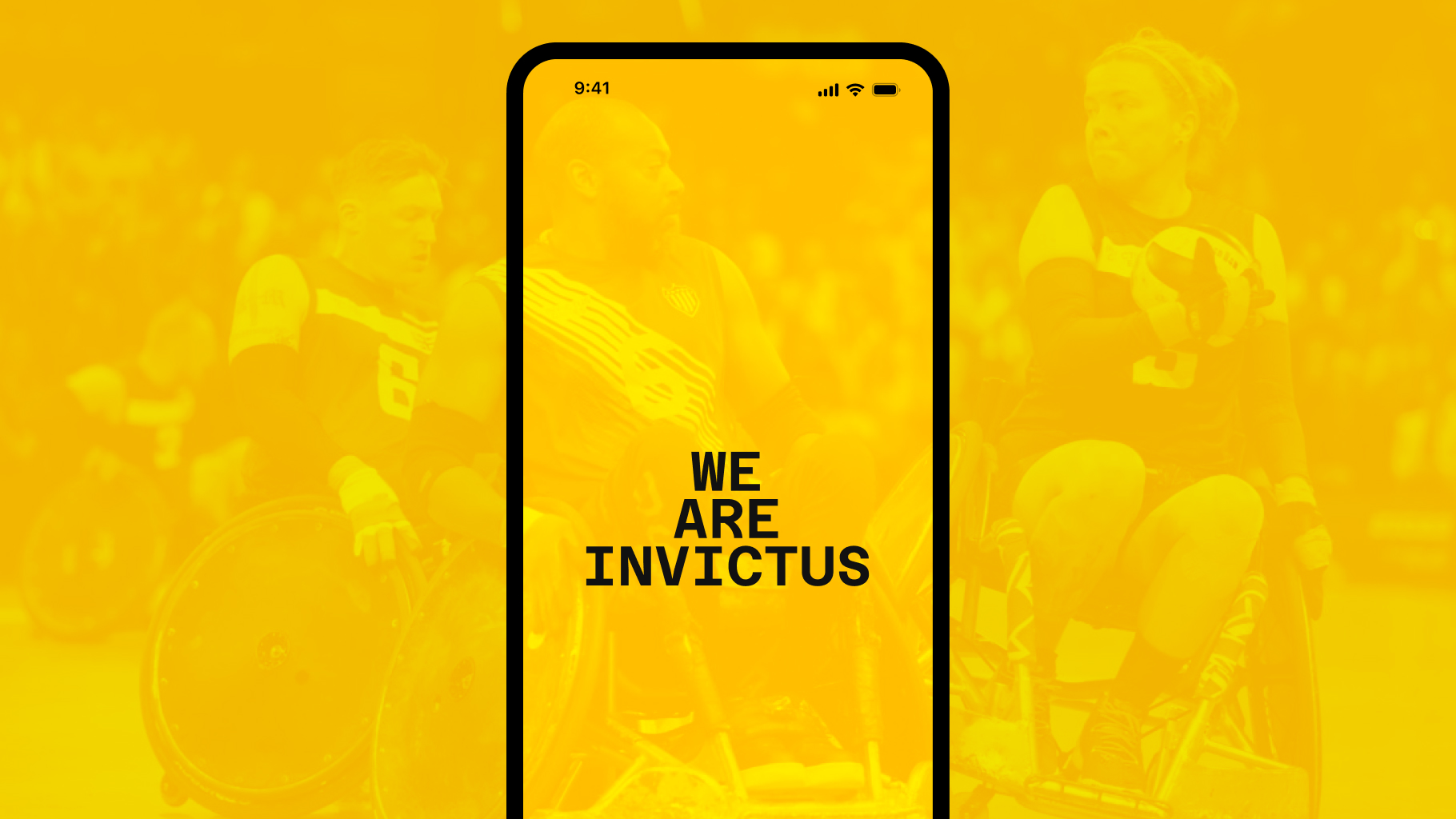
What we did
Having identified our priorities, we mapped both the user sign-up journey and what was happening in the back end, creating a view of the end-to-end experience.
This gave us quantitative evidence by highlighting friction points and bottlenecks for members and employees, validating the qualitative feedback Invictus had received from users and their own team. For instance, we knew from member anecdotes that the initial sign-up process, which involved uploading personal documentation, created a backlog as it all had to be checked manually. While necessary, this negatively impacted the experience on both sides.
With this plan, we worked with the Invictus team to design a reimagined user journey to simplify the experience for both users and the back office. This collaboration allowed us to have each step validated by the team that would have to work with it, securing their buy-in and ensuring our proposals reflected their workflows.
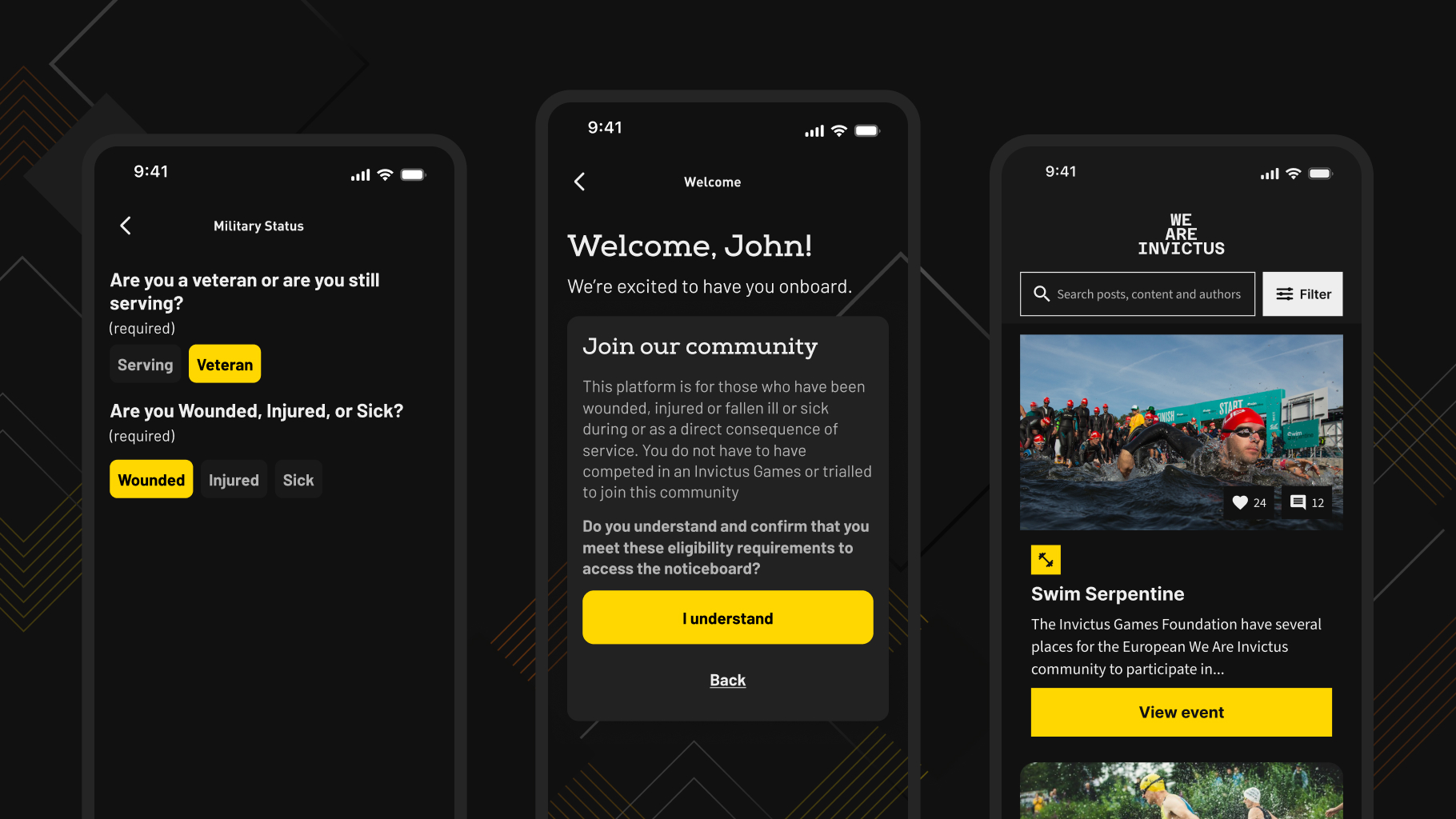
Throughout the design phase, accessibility in UX and UI was a primary focus. With We Are Invictus working across multiple operating systems it can’t benefit from the accessibility functions that native iOS or Android apps enjoy.
To overcome this, we focused on readable fonts, high-contrast elements, and colours that could be quickly improved as part of the redesign.
Meeting deadlines and expectations
The first phase of our work with Invictus is live in time for the tenth-anniversary events. As it is an ongoing project, many of the measures we introduced are still underway. However, we have already started to see some positive results.
Looking ahead
With the first phase live, we’re now focusing on the next part of the journey. That includes:
- Adding in more analytics to capture insights and inform further improvements and new features
- Implementing AI to review documentation as an initial first-pass and pre-fill approvals for human review
- Evolving accessibility
- Continuing to apply best practices in all aspects of UX, compliance and security
“The We Are Invictus Games project is an incredible success, and it’s a testament to the strong collaboration and shared vision we’ve had from the very start. This partnership has been about more than just delivering a great outcome—it’s about building something meaningful and sustainable for the long term. We’re proud of what we’ve accomplished together and excited about what’s ahead.”
Steve Knight, CEO, UIC Digital

